Skin Feeling Dry? A Dermatologist and Nutritionist Share Their Tips for Dewy, Hydrated Skin
Whether you suffer from dry skin or not, it’s always a good time to brush up on the myriad ways to keep it healthy and moisturized from the inside and out. It can be easy to forget that when it comes to hydrating your skin, it’s just as important to be mindful of what you put inside your body as the products you use topically. That’s why we tapped a nutritionist and a dermatologist to give us the full scoop on how to hydrate skin, regardless of age or skin type.
The changing of the seasons, genetics, diet, hormones, and the natural aging process all cause shifts in your skin’s needs. What worked last week, month, or year might not necessarily be what your skin needs today, and that’s okay!
Things like acne, redness, inflammation, dry skin, and more are all signs that your skin might not be hydrated enough, so it’s important to listen to the body’s cues and make a note of what it may currently need. One of the best things you can do is invest in self-care—take some time out for yourself to ensure everything is balanced, healthy, and functioning as it should.
To get further clarity, we spoke to Dr. Y. Claire Chang at Union Square Laser Dermatology and certified Integrative nutrition health coach, Edie Horstman about how to hydrate skin, and their thoughtful answers give a lot of clarity on what could potentially be a frustrating and confusing issue.

What part does nutrition play in skin hydration?
There are numerous studies that have looked into how nutrition affects the skin—mainly in the form of wrinkles, dryness, and loss of elasticity. Horstman tells me vitamins, minerals, antioxidants, healthy fats, and protein all contribute to skin health and suppleness. In addition to drinking H20, water-rich foods like watermelon, tomatoes, cucumber, and strawberries also support skin hydration. While it’s not as pivotal as drinking water, these ingredients are also nutrient-rich and absolutely make a difference in upping your daily liquid intake.
So the question is, how much water should we be drinking for optimal skin hydration? While it varies from person to person, Horstman says you want to strive for at least eight glasses of water per day. But the most important thing to remember is that consistency is key. She notes that drinking eight glasses one day and then two the next isn’t going to necessarily affect your skin’s hydration. Additionally, what’s in your water matters. When possible, use a filtration system and try to steer clear of plastic water bottles.
Skin hydrating vitamins and minerals to add to your diet:
- Biotin
- Keratin
- Vitamin A
- Collagen
- Vitamin D
- Omega-3 fatty acids
- Vitamin E
- Fish oil
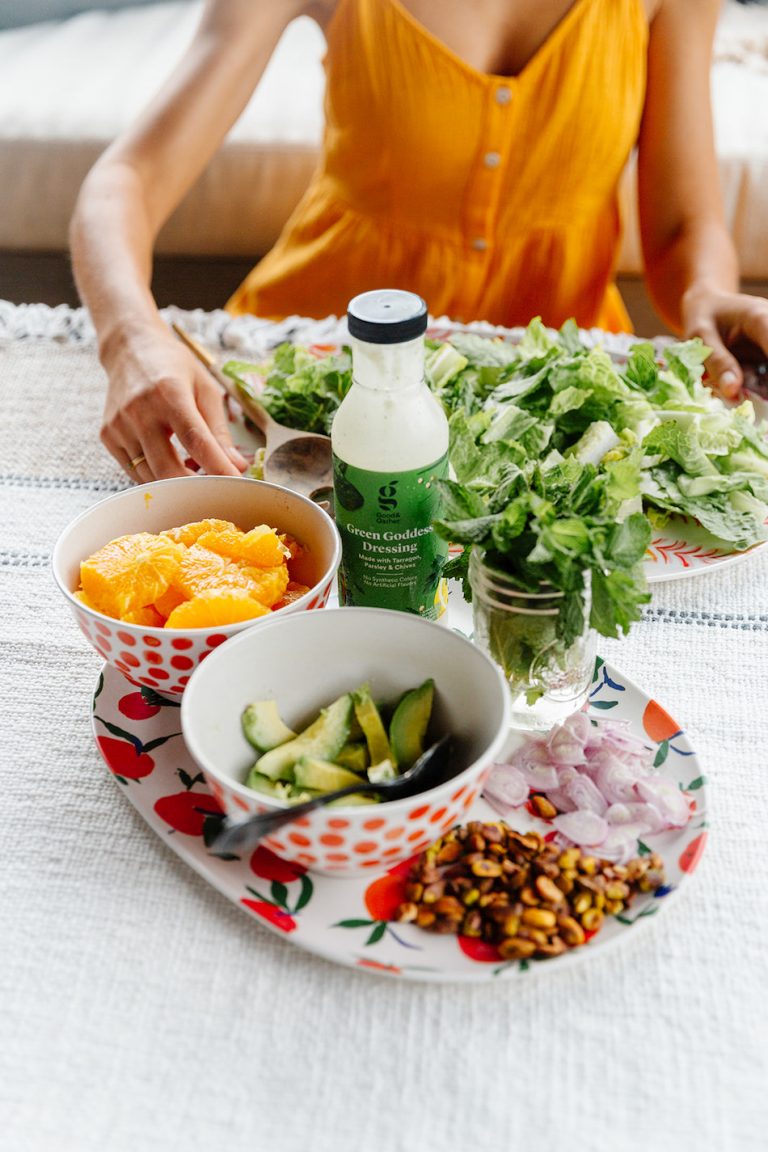
Skin hydrating foods
- Healthy fats like walnuts, coconut oil, avocados, olives, and egg yolks.
- Hydrating fruits like watermelon, red grapes, papaya, and coconut water.
- Omega-3 rich proteins like wild-caught salmon and herring.
- Hydrating veggies like cucumber, celery, bell peppers.
Foods to avoid
Foods that are highly processed, contain inflammatory oils (seed oils like canola and safflower), and are loaded with artificial ingredients and preservatives aren’t going to do your skin any favors. Noted!
Horstman’s tips for how to keep skin hydrated from the inside out
You might be surprised by how much you can do for your skin’s hydration levels from a health and nutritional standpoint. Choose organic produce that is in season, pasture-raised protein, and wild-caught fish—Horstman recommends perusing the frozen aisle! Stick with minimally processed foods that will aid in skin health and hydration.
Beyond nutrition, everyone’s skin is different, but certain factors like weather, air conditioning, and stress can impact the skin universally. Getting adequate sleep, sweating via exercise, steam, or sauna, and exfoliating your skin helps remove toxins while locking in moisture from a hydrating skincare routine.
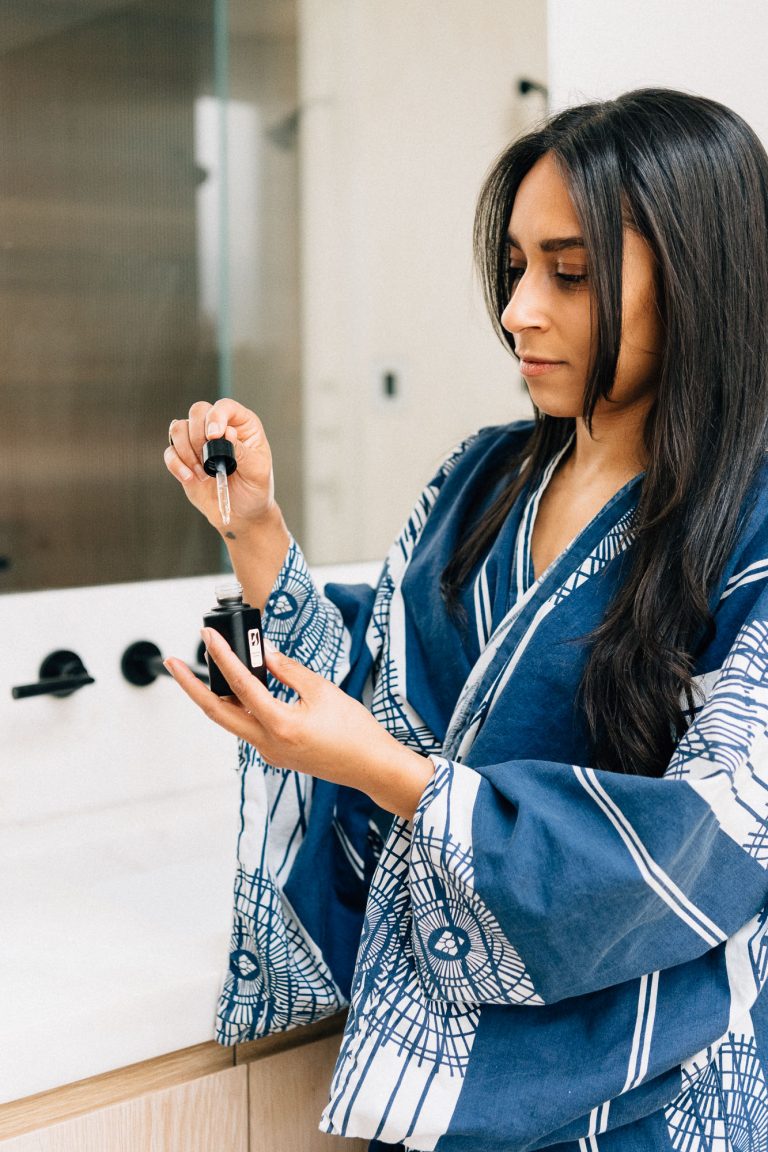
Let’s talk skincare with Dr. Chang
Dry skin (AKA xerosis) can be caused by a variety of different factors, including genetics and environmental triggers. Potential environmental triggers include weather, heat, air conditioning, harsh soaps, hot baths, or certain skincare products. Deodorant soaps or harsh scrubs can also strip the skin of its natural oils and dry it out. Internal factors include age and genetic conditions, like eczema.
Dr. Chang also says our skincare routine should shift to match the change in seasons and humidity. The air and our skin tend to be driest in wintertime, and frequent moisturizing throughout the day is important. She recommends using moisturizers that have a mix of humectants, emollients, and occlusive ingredients. You can also mix and match hydrating toners, serums, and moisturizing creams for a boost of hydration.
Keep scrolling for Dr. Chang’s tips for how to hydrate skin:
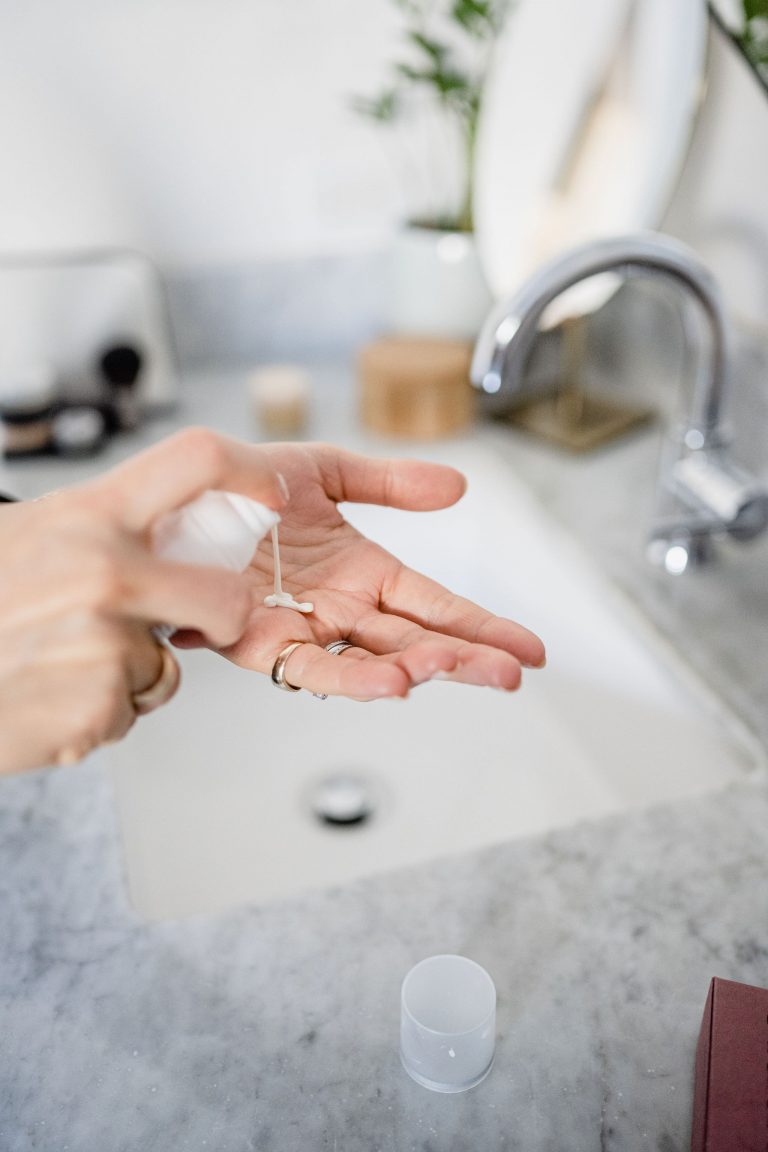
Switch from a lighter lotion to a thicker cream
If the weather changes or you find yourself suddenly in a drier environment, make sure to swap your lighter lotions for a heavier-duty cream that will help to seal in moisture and protect the skin.
Keep showers short and lukewarm
Long, hot showers can dry out the skin. Limit them to no longer than five to 10 minutes. Pat dry and apply moisturizer immediately when your skin is most primed to absorb the hydration.
Use a humidifier
A humidifier can keep the air moist and decrease the likelihood of drying out the skin during dry weather, winter, or when experiencing frequent air conditioner use.
Avoid drying, irritating topicals or chemicals
Anything from natural astringents like tea tree oil to strong acids and peels can make skin dry and damage the natural moisture barrier.
Use a hydrating face mask regularly
If you aren’t masking as part of your weekly skincare routine, consider adding a moisture-rich option to your repertoire.
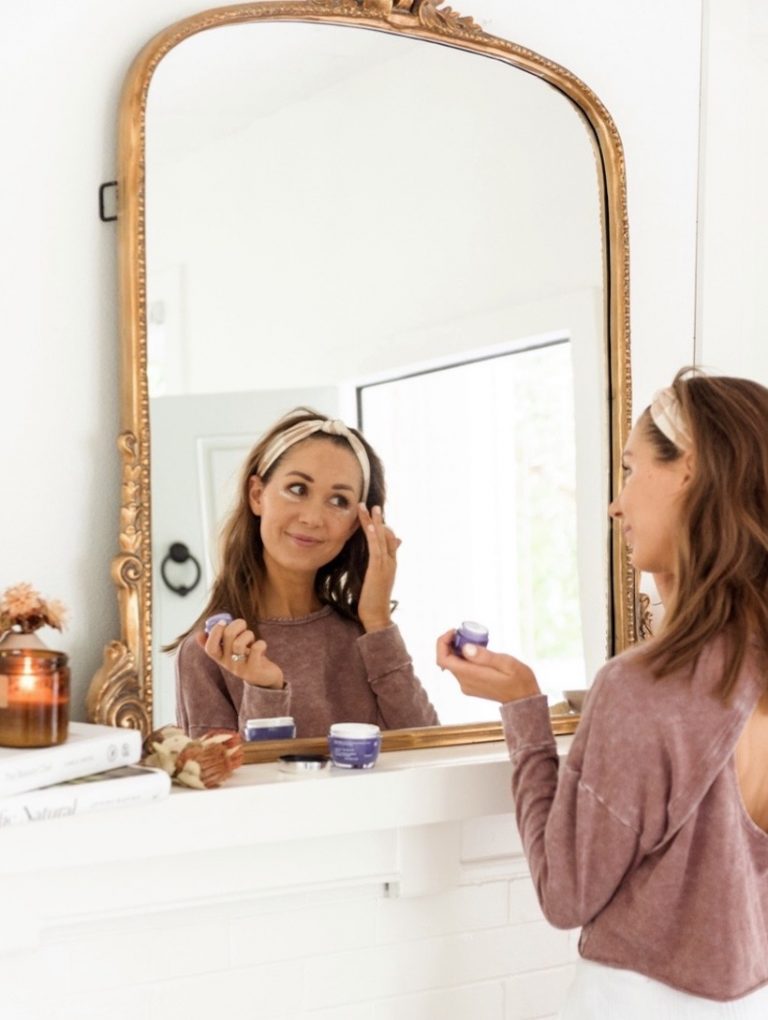
Look out for these hydrating and skin-repairing ingredients
- Ceramides—Dr. Chang notes that ceramides are a natural lipid in our skin. Ceramide levels drop with age and dry weather, making it important to replace these lipids in the skin with skincare products.
- Glycerin
- Hyaluronic acid
- Niacinamide, a strong antioxidant that can help repair and brighten the skin.
- Fatty alcohols like cetyl and stearyl alcohol
- Squalane
Read on for Dr. Chang’s favorite products to hydrate skin:
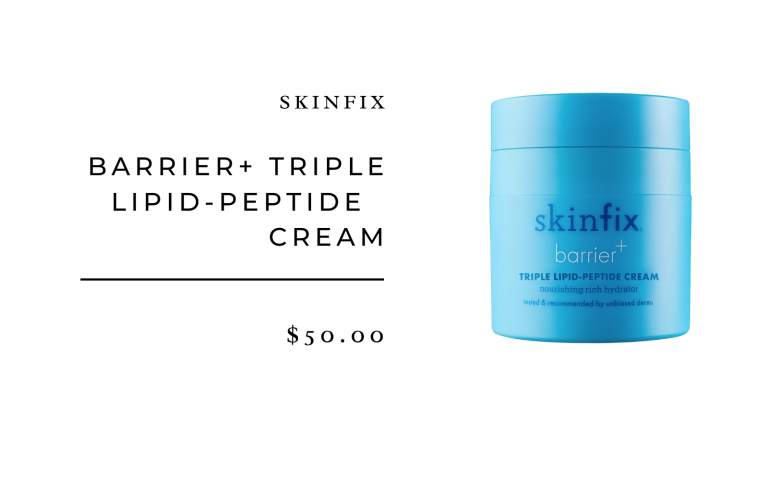
This peptide-rich cream contains a triple lipid complex, hyaluronic acid, shea butter, glycerin, and jojoba seed oil that gives skin a dollop of moisture and glow.
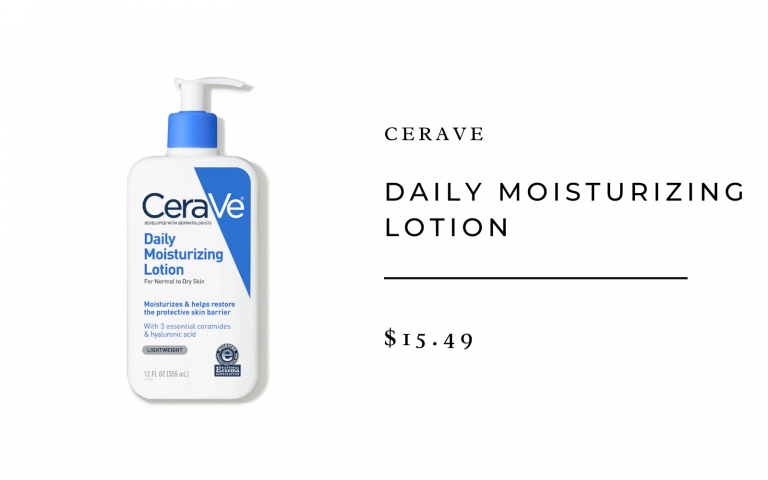
This lotion is formulated with ceramides and hyaluronic acid to repair and protect dry skin.
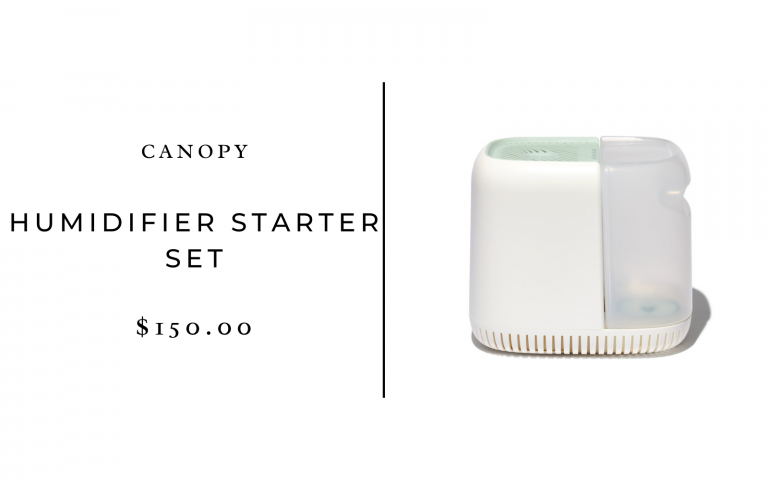
Using a humidifier can make a huge difference when trying to keep skin hydrated. This one promotes healthy, glowing skin while also alleviating cold, flu, and allergy symptoms and reducing the spread of viruses indoors.
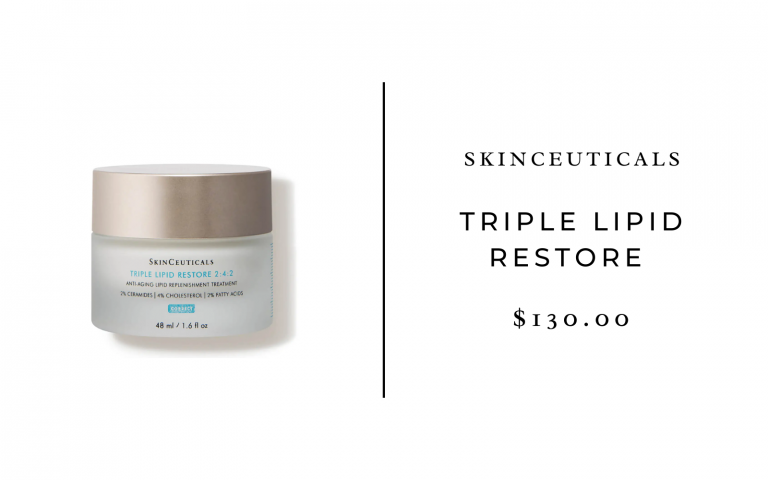
This anti-aging moisturizer has essential lipids like ceramides and fatty acids to restore the skin’s protective barrier, along with vitamin E and essential oils.
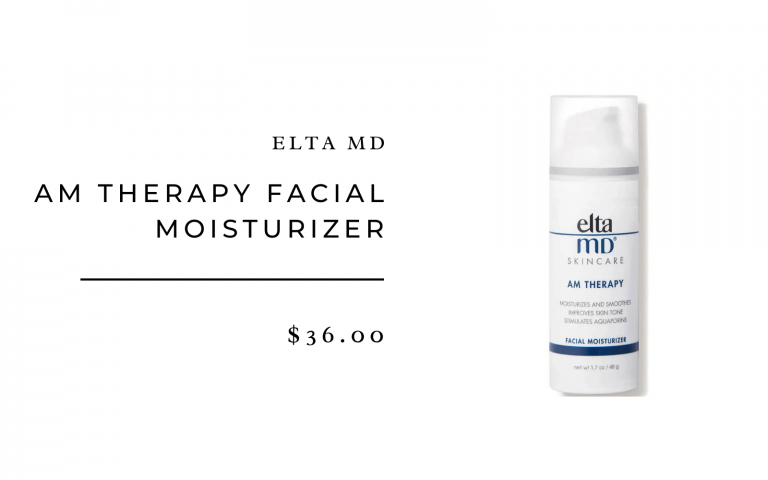
One of our and Dr. Chang’s faves, this non-comedogenic formula moisturizes the skin with the help of hyaluronic acid, glycerin, and niacinamide.
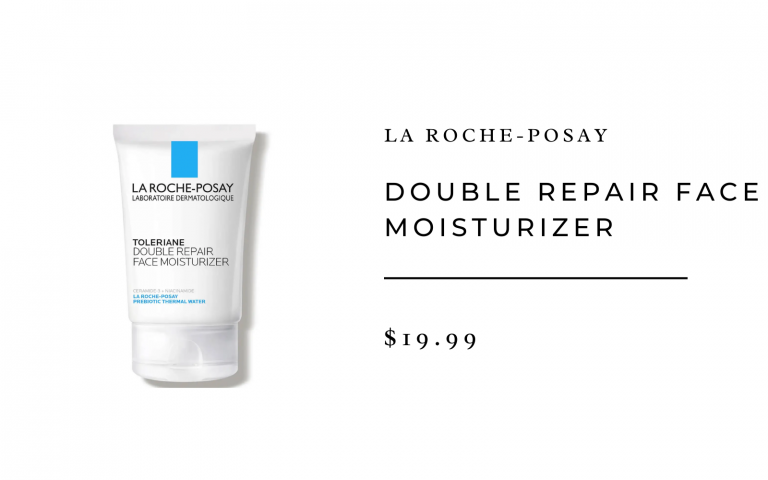
Dr. Chang recommends using this moisturizer on sensitive skin. It’s formulated with prebiotic thermal water, ceramides, glycerin, and niacinamide to relieve dryness while soothing and repairing the skin barrier.
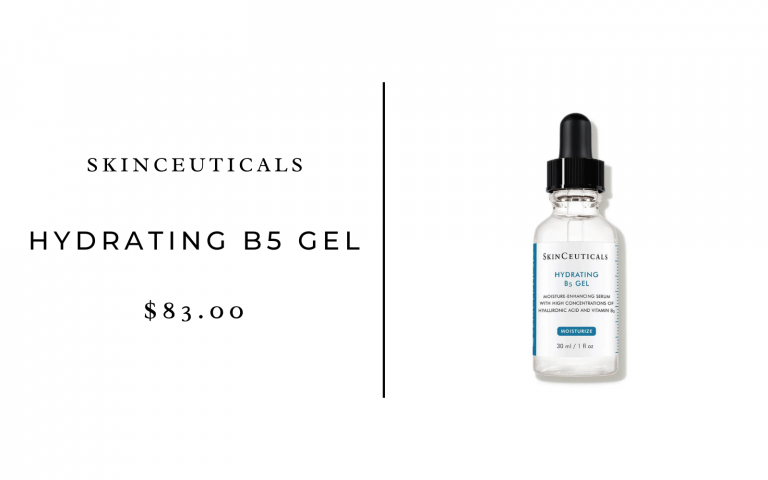
Get a boost of hyaluronic acid and vitamin B5 to help bind moisture to the skin and leave it smooth and revitalized.
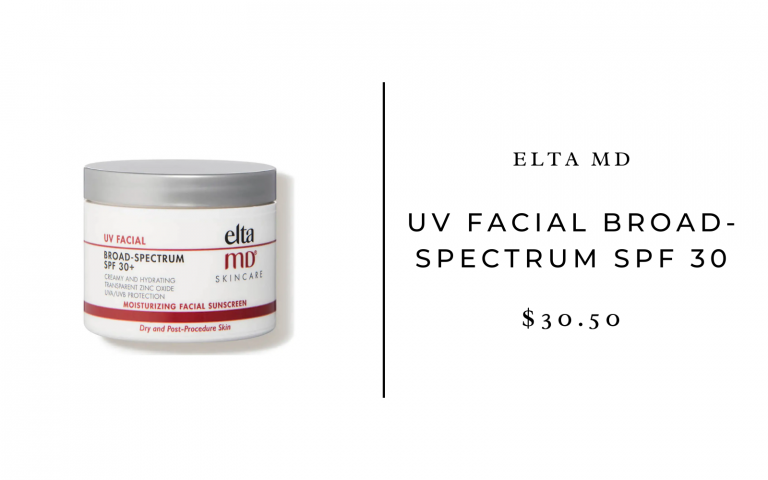
This moisturizer hydrates dry skin while also defending against harmful UVA and UVB.
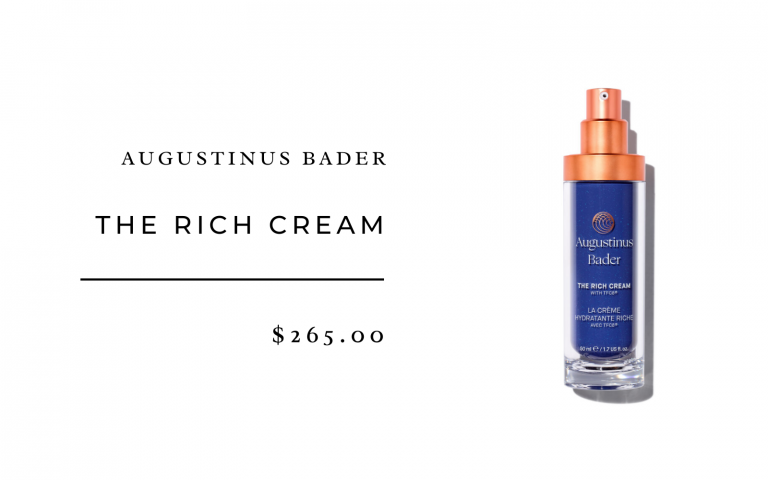
This cult-favorite is a luxurious, ultra-hydrating cream that has been clinically proven to improve skin hydration, reduce wrinkles, and improve firmness.
